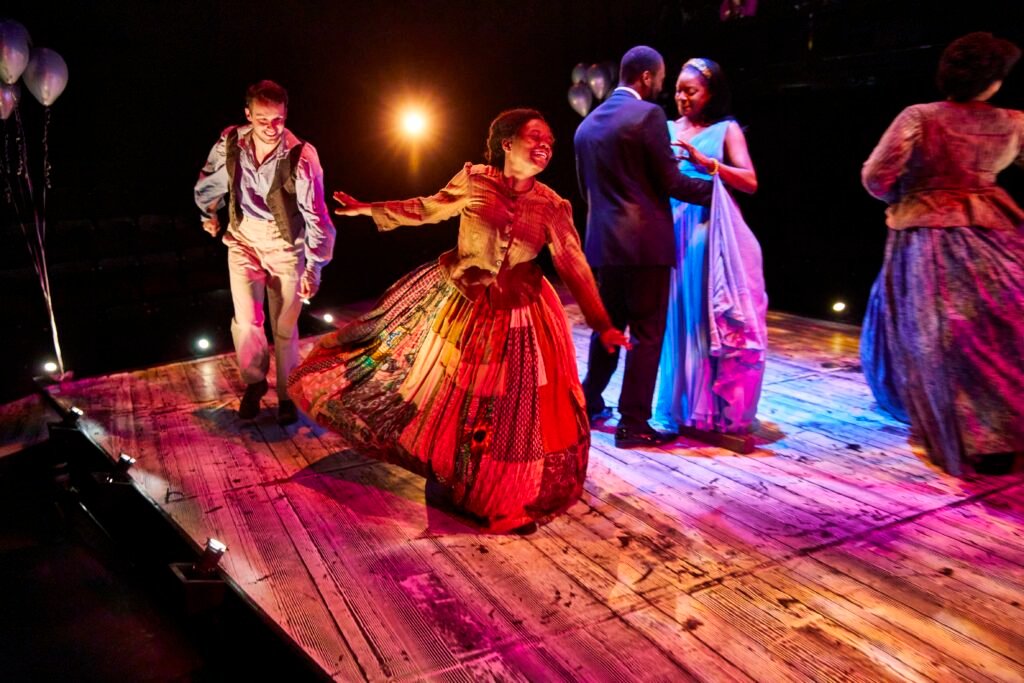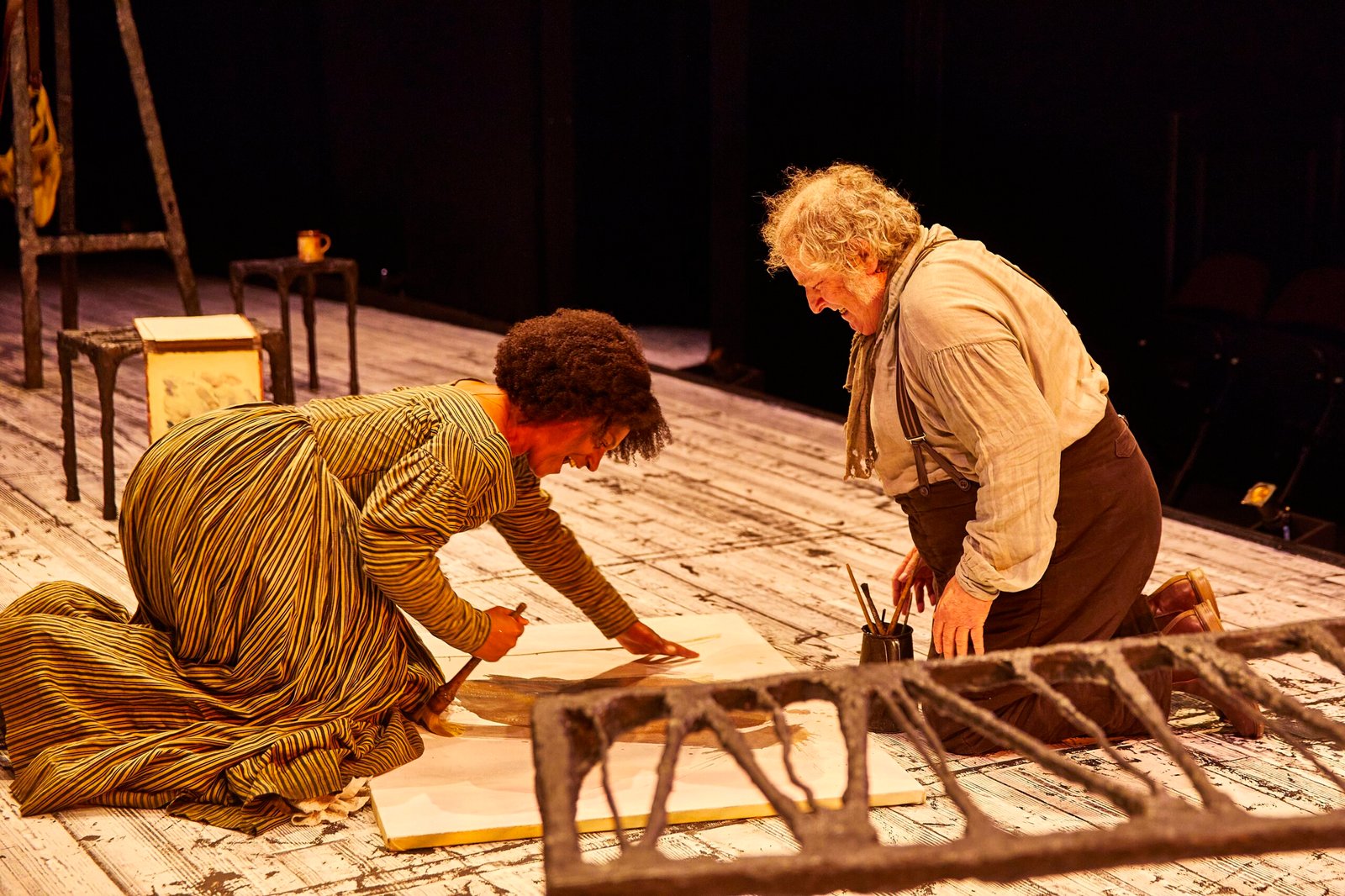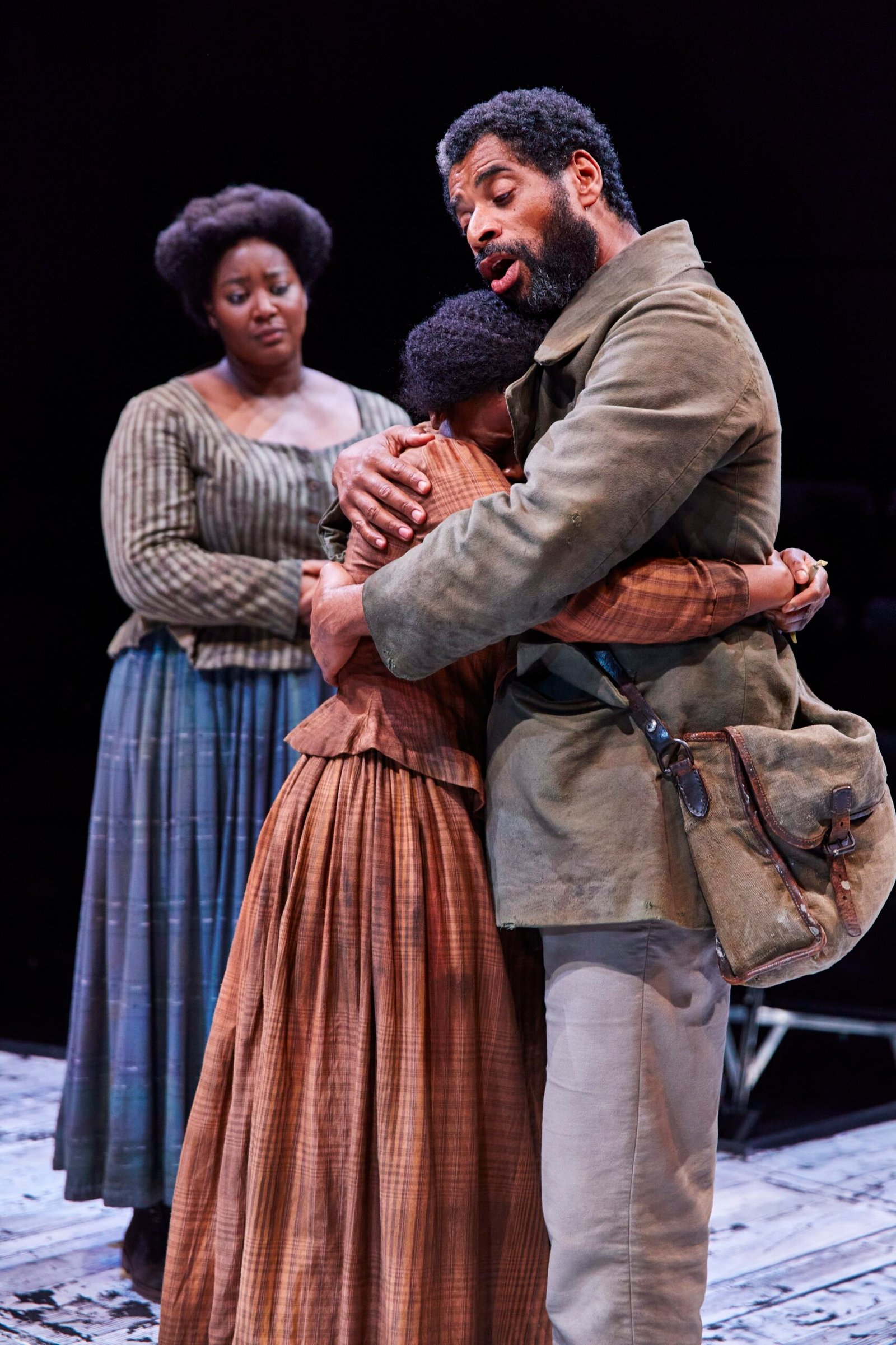Winsome Pinnock's poetic inheritance history
spans two centuries
“The past is written all over my body.”
Lucy

In 1841 when the first census was taken the artist Joseph Mallord William Turner rowed himself in a boat to the middle of the Thames where the census numerator would be unable to include him. So history is denied that early record of him. Now he is one of the subjects of Winsome Pinnock’s play Rockets and Blue Lights at the Dorfman at the National Theatre.
In 1781, that decade of revolutions in America and France, the slave ship Zong, captured from the Dutch, and renamed from Zorg meaning Care in Dutch, landed in Jamaica with around half of the human slave cargo that had set out from West Africa. The ship had lost its way with a series of navigational errors and ended up with too little water to support its crew of 17 and cargo of 442 slaves. The crew was too limited to run the ship efficiently and in terms of good sanitation.
The case became well known because the insurance company refused to pay out the claim by the company that owned the ship. The issue was that whilst you could not claim for anyone dying on board from natural causes, if your human cargo had been lost overboard, you could put in a claim. The result of this policy was that the captain was accused of deciding to throw overboard the sick and dying in order to make this voyage as profitable as possible.
This case became one of the most mentioned in the movement for the abolition of the slave trade and a prosecution was brought later accusing the crew of murder. In May 1840 Turner’s picture “Slavers Throwing Overboard the Dead and Dying – Typhoon Coming On” was exhibited at the Royal Academy along with “Rockets and Blue Lights (Close At Hand) to Warn Steamboats of Shoal Water.” The first mentioned painting has now been shortened in name and is generally referred to as “The Slave Ship” and is held by Boston’s Museum of Fine Art.

The play opens at an exhibition where one of the visitors is an actor, Lou (Kiza Deen) who is working on a film, The Ghost Ship, about the painter Joseph Turner and his painting where she plays an African woman Olu. Paul Bradley who is the actor Roy, playing Turner in the film, and the artist in Rockets and Blue Lights, in the 1840s. Lou is best known as the captain in a Star Trek type television series and is recognised by Billie (Anthony Aje) an aspiring artist.
The film director, Trevor (Karl Collins) and Lou argue as due to commercial considerations, he wants to cut some of the scenes with her back story from the film. Juxtaposing scenes from the present with those from the past we follow Thomas (Karl Collins) a sailor in the 19th century and his wife Lucy (Rochelle Rose), and their daughter Jess (Kudzai Sitima). Thomas’s story has great injustice. We feel the impact of the slave history on Thomas and Lucy and also on Lou and Billie as memories survive the centuries.
In the theatre programme Winsome Pinnock says that she didn’t want her play to be about the Zong and so I think derives her choice of title from JMW Turner’s other painting exhibited at the same time as “The Slave Ship” with its message of alert and warning
Director Miranda Cromwell gets strong performances from her actors who are often playing multiple roles. Sea shanties are sung in that tradition of folk music tied to the maritime in Femi Temowo ‘s choice of music and the bare boards of the set are flooded for the cast to walk through water.
The play is experiential as stories from different eras are played alongside each other and ideas from the past fuse and collide with the present day. There are times when it is hard to follow as two actors treble and quadruple up on parts but it will make you think about the reality of history in all its ugliness and not as a pretty costume drama like Bridgerton.

Production Notes
Rockets and Blue Lights
Written by Winsome Pinnock
Directed by Miranda Cromwell
Cast
Starring:
Anthony Aje
Paul Bradley
Karl Collins
Kiza Deen
Rochelle Rose
Matthew Seadon-Young
Kudzai Sitima
Cathy Tyson
Everal A Walsh
Luke Wilson
Creatives
Director: Miranda Cromwell
Designer: Laura Hopkins
Movement: Annie-Lunnette Deakin-Foster
Composer and Musical Director: Femi Temowo
Lighting Designer: Amy Mae
Sound Designer: Elena Peña
Fight Director: Yarit Dor
A Co-Production with the Royal
Exchange Theatre and the
National Theatre
Information
Running Time: Two hours and 25 minutes with an interval
Booking to 9th October 2021
Address:
Dorfman Theatre
National Theatre
Upper Ground
South Bank
London SE1 9PX
Oaklands Way
Rail/Tube : Waterloo
Telephone: 020 7452 3000
Website: nationaltheatre.org.uk
Reviewed by Lizzie Loveridge at the
Dorfman Theatre at the final preview
performance
on 1st September 2021

